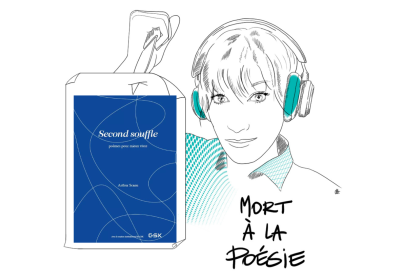Kevin Ayers – « Yes, We Have No Mananas »
Tellement de chansons me rappellent l’été pour une raison ou une autre. Un grand nombre datent de la fin des années soixante, et beaucoup d’entre elles sont des chansons des Kinks.
Il est peut être plus facile de se souvenir des albums. Nous avons probablement tous en tête un album pour chaque été nous ayant marqué. Donc, mentions honorable à “Storm The Gates Of Heaven” de Wayne County and the Electric Chairs en 1978, “Jonathan Sings” de Jonathan Richman en 1984 et “It Takes a Nation of Millions” de Public Enemy en 1988 pour n’en citer que quelques uns.
Pourtant mon choix se porte sur l’été fou et caniculaire de 1976, qui a commencé pour moi aux alentours de mai avec un concert de Kevin Ayers et son groupe à l’université de Nottingham. J’étais déjà un fan et le groupe, excellent, comprenait Zoot Money et le futur Police Andy Summers. Kevin était d’humeur effrontée, la soirée a été mémorable.
Les semaines sismiques qui ont suivi, m’ont vu assister au concert du Patti Smith Group à la Roundhouse, à celui des Pistols au Lyceum et à l’écoute de “Roadrunner” et “Foggy Notion” en vinyle. C’était formidable, mais mon souvenir le plus marquant de cet été est l’album de Kevin Ayers “Yes, We Have No Mananas”.
En 1976 il y avait toujours quelques personnes qui pensaient, voire désiraient que Kevin Ayers se transforme d’une manière ou d’une autre sen une véritable pop star. Vous pouvez rigoler si vous voulez, mais je me souviens d’un Julian Cope complètement dans les vapes sur la couverture de Smash Hits. Donc quand Kevin a effectué son retour sur le label Harvest après une période tendue avec Island, quelqu’un avait décidé de faire l’effort de promouvoir son nouvel album. J’étais même étonné de le trouver mis en avant dans la vitrine de mon disquaire.
J’étais encore plus impressionné, même complètement abasourdi, de voir Kevin jouer une version du « Falling in Love Again » de Dietrich dans une émission télé pour ados. Avec un piano à queue éclatant.
Je me suis senti obligé d’acheté l’album.
Comme vous pouvez l’imaginer, la pochette est à l’opposé de celles du punk : Kevin, vêtu de façon décontractée, vous fixe, vous l’acheteur, d’un regard sardonique, entouré de photos touristiques du paradis méditerranéen dans lequel il habitait. Et pourtant le titre de l’album n’est pas si éloigné que ça du “No Future”.
Kevin n’avait que 32 ans à l’époque, mais de mon point de vue d’ado, il me paraissait incroyablement vieux et d’une grande sagesse. Il lui était donc possible de torcher avec brio des légèretés comme “Mister Cool” et de me faire croire qu’elles portaient un message d’une grande sagesse et d’un sens profond.
Le disque n’est qu’un ensemble de pop songs légèrement left-field bien carrées, orné des lignes de guitares outrageuses de Ollie Halsall et d’une production radieuse et tendue de Muff Winwood. Mais se cache aussi sur cet album la susnommée version de « Ballad of Mister Snake » de Dietrich, qui est du niveau d’un Viv Stanshall au son plus acerbe, et d’une chanson d’amour absolue, “Yes, I Do”.
C’est peut être un album sans ambition. Comparé à la production du milieu des années 70 de The Soft Machine, l’ancien groupe de Kevin , c’est peut être quelque chose qui mérite d’être acclamé. Nous étions après tout au cœur de l’été qui remettait les pop songs de trois minutes au goût du jour. Kevin le faisait de manière langoureuse, en mode baléarique ensoleillé, mais il le faisait.
Ça me fait plaisir qu’au lieu d’un album de vieux « prog-rocker » ce soit un disque insouciant, joyeux, mais surtout une excellente surprise (Kevin se transformait déjà en reclus à cette période) qui m’ait accompagné tout l’été 76. Je prends toujours du plaisir à l’écouter aujourd’hui. C’est ce qui est fascinant avec les albums en dehors des modes quand ils sont de qualité. On peut toujours les écouter, non pas par nostalgie, mais parce qu’ils ont encore quelque chose d’agréable et de magnifique à raconter.
[mks_separator style= »dotted » height= »4″]
[mks_button size= »small » title= »Tous les artistes de la bande son idéale de l’été » style= »rounded » url= »http://addict-culture.com/tag/la-bande-son-ideale-de-lete/ » target= »_self » bg_color= »#f5d100″ txt_color= »#000000″ icon= »fa-play » icon_type= »fa »]
[mks_separator style= »dotted » height= »4″]
In english
So many individual songs remind me of summer in one way or another; many date from the late sixties and a good number of them are by the Kinks. It’s perhaps a little easier with albums; most of us probably have one album for each summer worth remembering.
So quick honourable mentions to Wayne County and the Electric Chairs (Storm the Gates of Heaven, 1978), Jonathan Richman (Jonathan Sings, 1984) and Public Enemy (It Takes a Nation of Millions, 1988), to name a few.
My choice, however, comes from the mad, blazing hot summer of 1976, which kicked off some time around May with my seeing Kevin Ayers and his band at Nottingham University. I was already a fan and this was a great band, involving Zoot Money and future policeman Andy Summers. Kevin was on fine, cheeky form and it was a memorable night.
Over the following, seismic weeks I was exposed to the Patti Smith Group at the Roundhouse, the Pistols at a Lyceum all-nighter, Roadrunner and Foggy Notion on vinyl. I loved it all, but the album that stays with me from that summer is Kevin Ayers‘ « Yes, We Have No Mananas. »
In 1976 there were still a few people around who considered it possible – desirable, even – that Kevin Ayers might be somehow converted into a full-on pop star. Laugh if you like, but I can remember seeing a completely addled Julian Cope on the cover of Smash Hits. So when Kevin returned to the Harvest label after an ultimately unsatisfactory relationship with Island, somebody actually made an effort to promote this record and I was well impressed to find the new album in an elaborate display at the front of the record shop.
I was even more impressed – well, completely astonished, really – to see Kevin performing a version of Dietrich‘s « Falling in Love Again« on a teen pop show on TV. With an exploding grand piano.
I was compelled to buy the album.
The cover is as far from punk as you could imagine: Kevin, casually attired, gazes sardonically the you, The Punter, surrounded by tourist-board photos of the Mediterranean paradise that he did actually inhabit. And yet, that title: it’s not a million miles away from « No Future », really, is it?
Kevin was only 32 years old at the time, but from my teenage viewpoint he seemed impossibly old and worldly wise. So it was possible for him to toss off lightweight confections like « Mister Cool » and have me believing that they carried important wisdom of deep significance. I could, at least, appreciate the apparently effortless grace with which he did it.
The album is basically just set of well-focused, faintly left-field pop songs, decorated with Ollie Halsall‘s outrageous guitar stylings and a tight, bright production from Muff Winwood. But lurking in there, too, is the aforementioned take on Dietrich, the « Ballad of Mister Snake« , which is worthy of Viv Stanshall at his most acerbic, and one absolutely stop-you-in-your-fucking-tracks love song, « Yes, I Do. »
It is, perhaps, an « unambitious » album. When one hears what Kevin‘s old band, the Soft Machine, were doing by the mid-seventies, perhaps that is something to be applauded. This was, after all, the summer of taking back the three minute pop song. Kevin was doing it in his own languid, sun-kissed Balearic fashion, but he was doing it.
It tickles me that the album that stays with me the most from that summer should be by an old « prog-rocker », but it was a lovely, carefree record, a happy, unexpected surprise (Kevin was turning a bit « reclusive », even back then) and I still enjoy hearing it today. That’s the great thing with « unfashionable » records, when they’re any good. You can listen to them still, not out of nostalgia, but because they still have something good and sweet and beautiful to say.

















